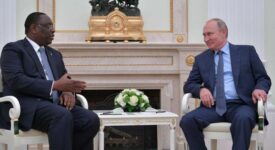Emmanuel Macron and Angela Merkel have proposed that the EU borrows on the financial markets in order to disperse some €500bn through grants to European economies hit hardest by the coronavirus pandemic. Under the Franco-German proposal, the member states receiving the funds would not need to repay the cash. Instead, it would be the EU budget, meaning the bloc as a whole, that would be liable for the debt. It the proposal is endorsed by the 25 other member states, it would amount to a significant move towards a level of burden-sharing and fiscal transfers firmly opposed during past crises. The European commission, the EU’s executive arm, would borrow the money under the EU’s name. Referring to the current crisis as a “moment of truth” for the EU, President Macron said the bloc had failed to show sufficient solidarity at the start of the pandemic, emphasising that the new cash would be given out in grants rather than loans.
The Franco-German ‚Rescue Fund‘ proposal comes as millions all across Europe are now paying the price of weeks of economic shutdown. In Spain, which has recently made huge strides in curbing its COVID-19 outbreak, food banks and neighbourhood associations are currently for a growing number of people the only things helping to cushion the blow. According to the federation of neighbourhood associations, more than 100,000 people in the capital Madrid are turning to social services and neighbourhood aid networks to get the food they need to survive. Charity workers say many of those in urgent need of help are unable to access government subsidies or are afraid to request them. “There are people who have tried to access social services, but the services are overwhelmed and aren’t accepting new applications. Or maybe they can’t apply because there could be a legal problem. There are people who haven’t got legal documents and can’t go to social services,” says Alba Díez, of the Neighbourhood Association of Aluche in Madrid.
Meanwhile, the EU may give an initial green light in the coming days for sale of the drug remdesivir as a COVID-19 treatment, made by US pharmaceutical company Gilead, the head of its medicines agency said on Monday (18 May), fast-tracking the drug to market as global competition for resources mounts. Demand for remdesivir has been growing as there are currently no approved treatments or vaccines for COVID-19, the respiratory illness caused by the new coronavirus. Apart from remdesivir, the head of the EU’s medicines agency Guido Rasi said other possible treatments against COVID-19 that may be available quickly are those based on monoclonal antibodies, which can “neutralise” the new coronavirus that causes COVID-19. Rasi also warned that Europe could face shortages of a COVID-19 vaccine if it were developed in a year’s time, echoing concerns raised by EU health ministers and officials earlier in May.
Article Categories:
ECONOMY & TRADE






